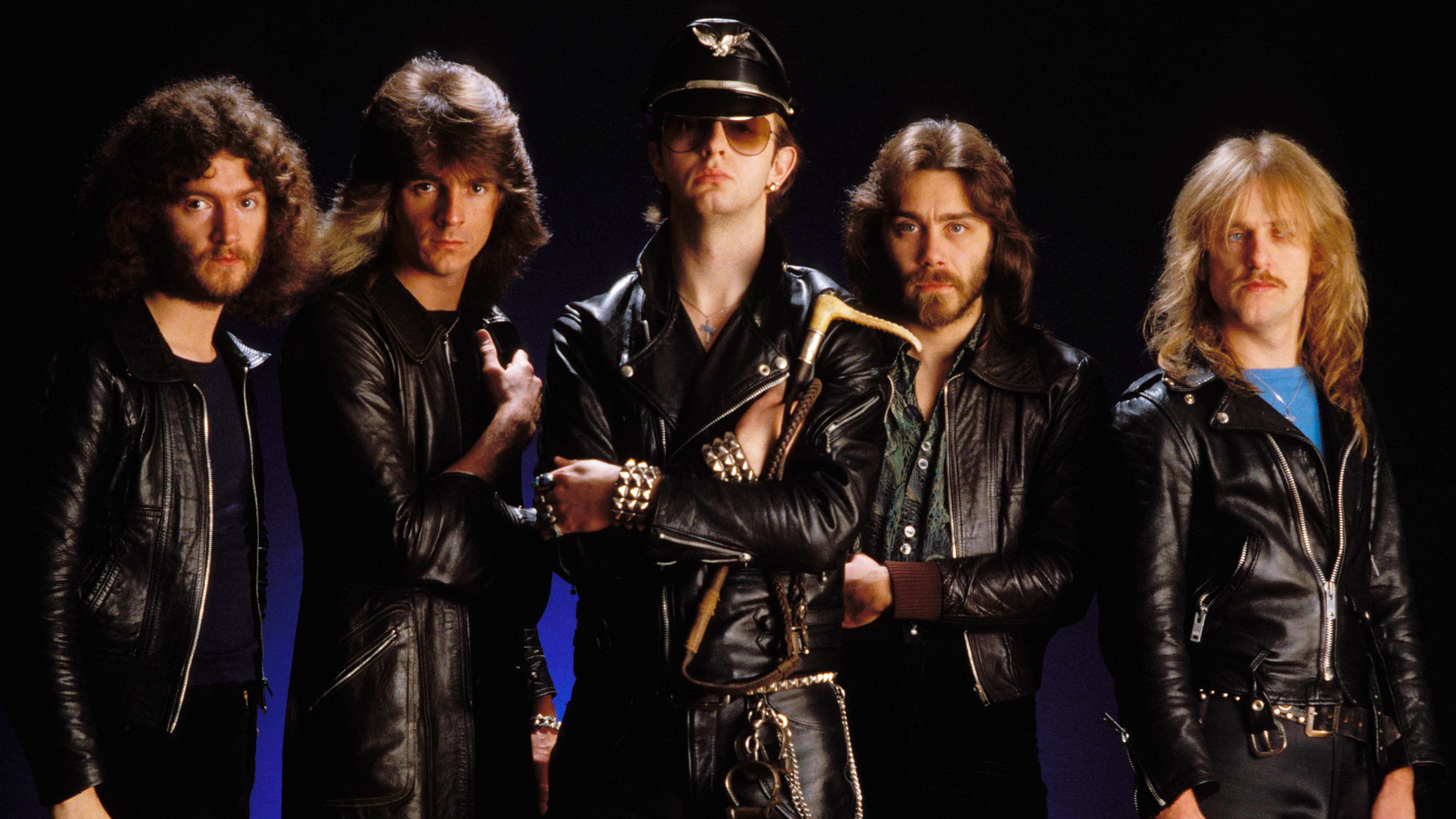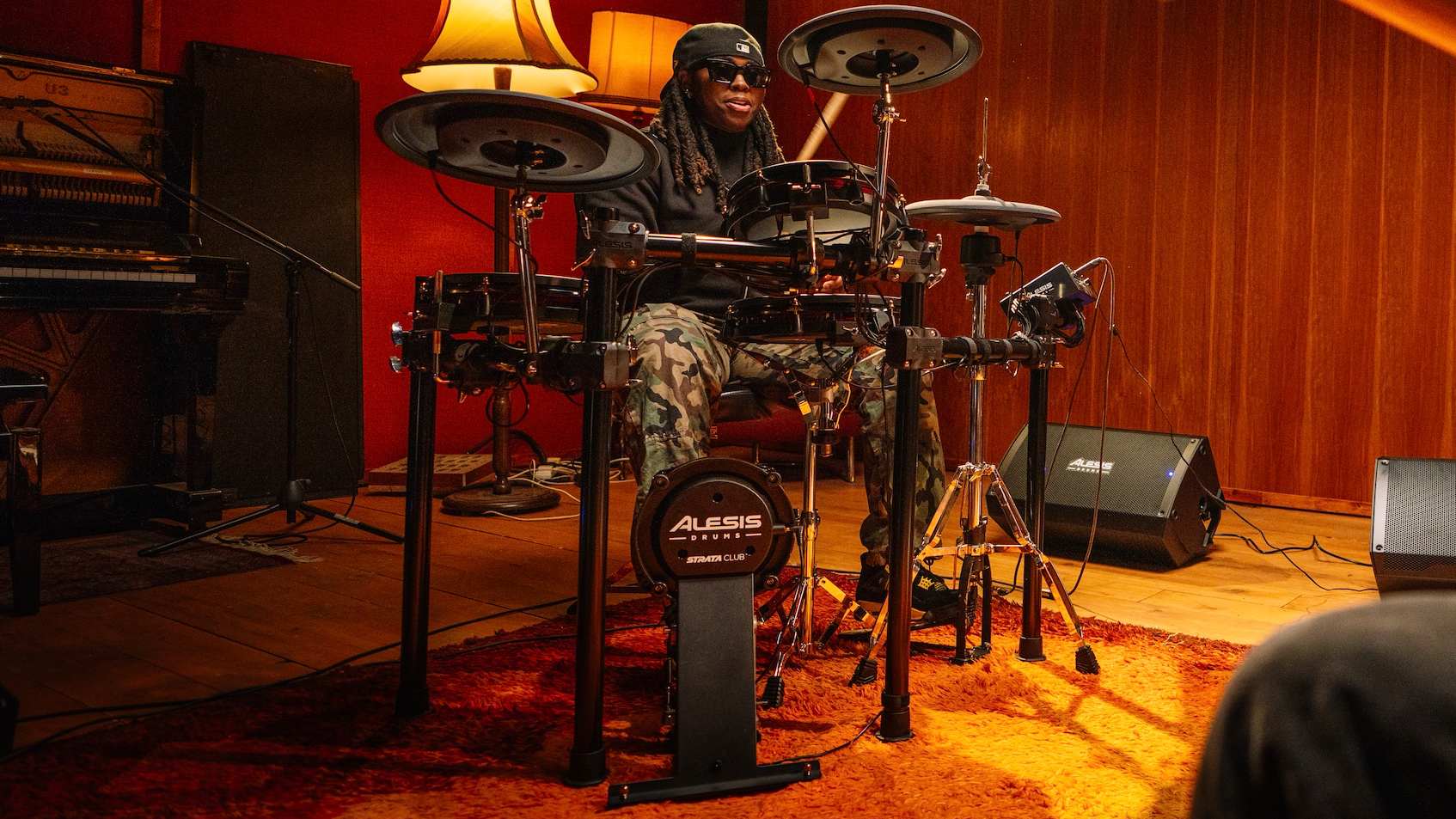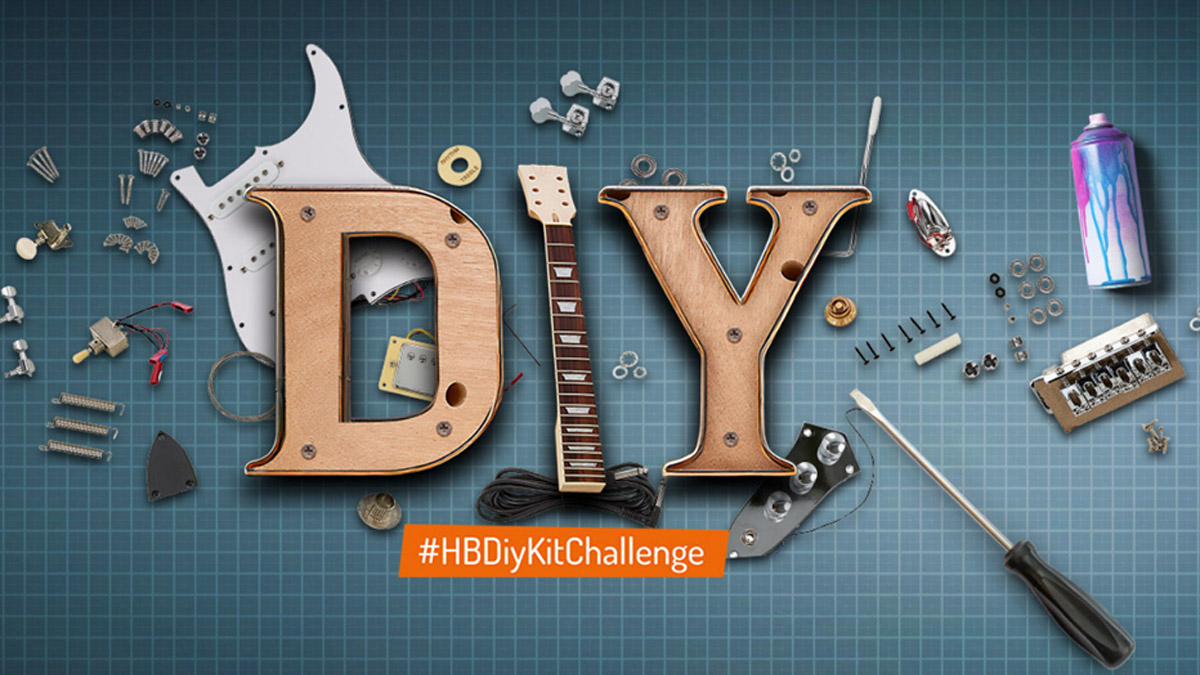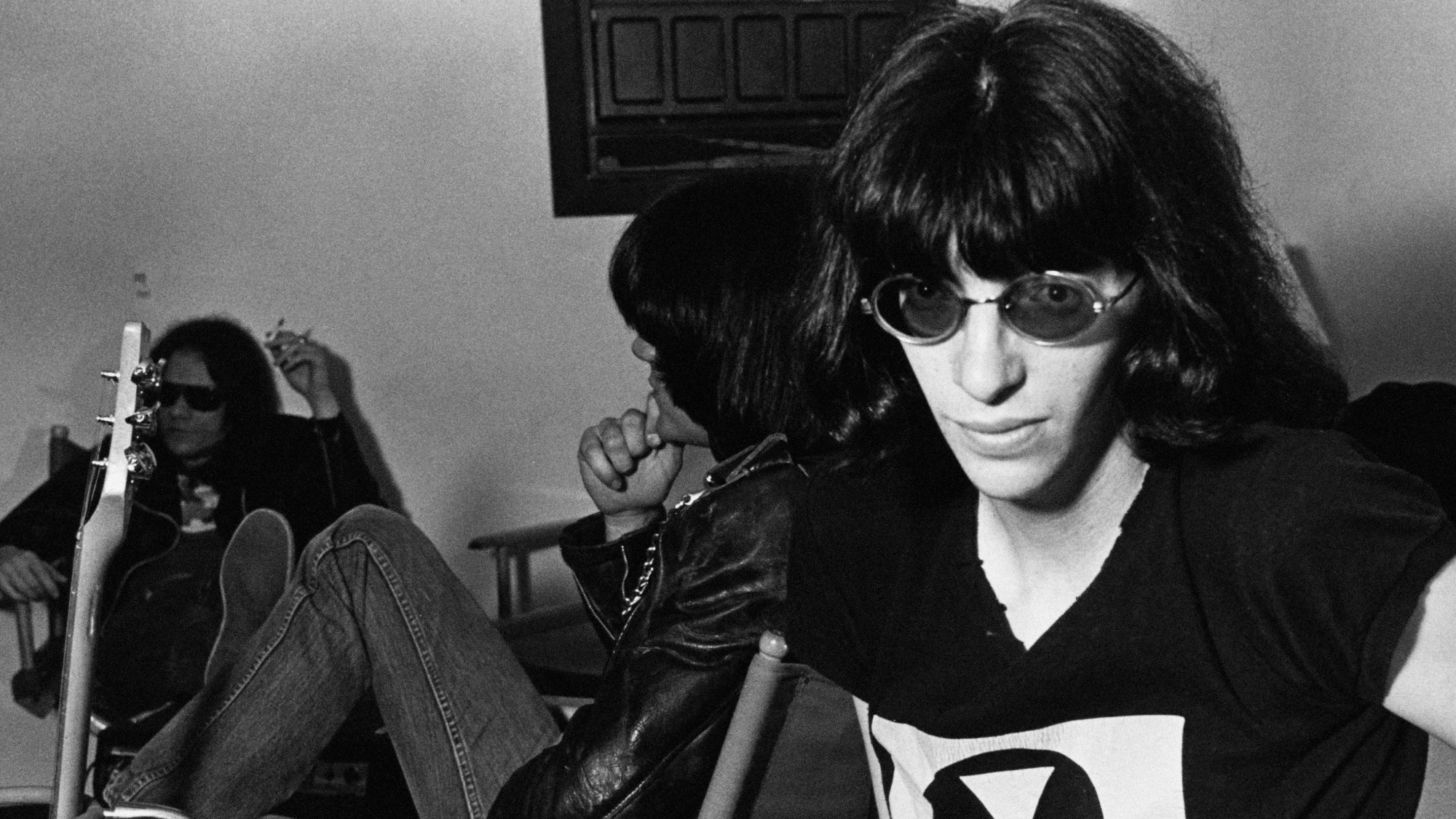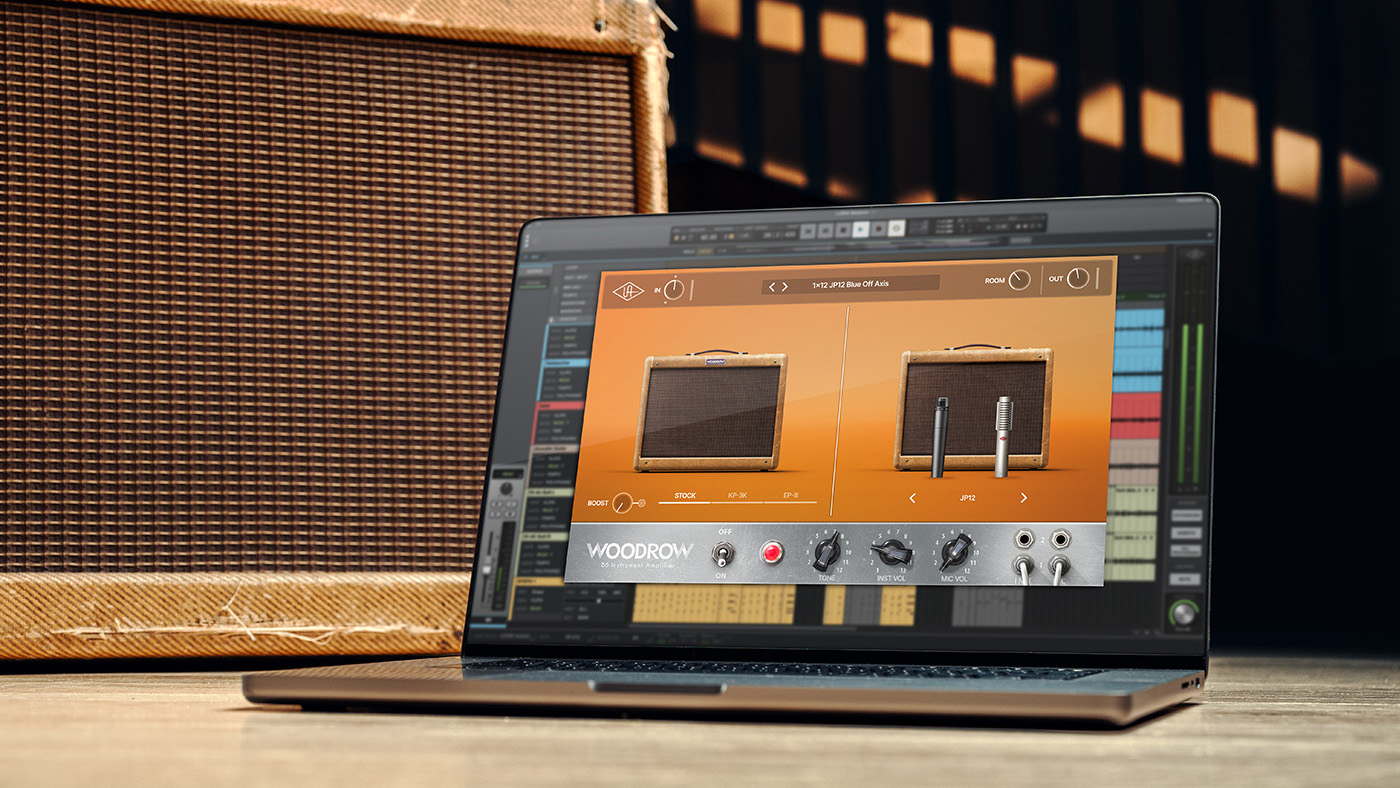D.D Dumbo: “Many of my songs have benefitted from the restriction of the loop pedal”
The 4AD-signed 12-stringer on collaboration, new noises and looper wizardry

Oliver Hugh Perry is best known by the moniker D.D Dumbo. The Australian songwriter is signed to 4AD and in 2016 released his debut album Utopia Defeated.
It’s a warped, guitar-driven, collection that deftly showcased Olly’s eclectic loop-driven amalgamation of Captain Beefheart, Malian blues and a cross-section of just about every other interesting sound to vibrate the planet in the last 30 years, all through a pop prism.
While Olly’s clever multi-instrumental compositions were initially based around a trusty Akai HeadRush looper pedal, his sound and band has expanded since the release of Utopia Defeated.
What has stayed consistent is the expansive, lush and innovative approach to guitar music that first got us frothy-mouthed and has kept his record on rotation throughout 2017. We spoke to Olly and producer/drummer Fabian Prynn to talk about the importance of creating new sounds, the issues of collaborating and the tonal tricks behind Utopia Defeated.
Everyone calls your style ‘unique’ in your write-ups. What do you attribute that to?
I think many of my songs have benefitted from the restriction of the loop pedal... I guess it’s similar to a drummer who can hold back
Olly: “Well, I guess it depends on what their standard of listening is like. Maybe it’s because my music is in a pop world and some of the voicings or the sounds are influenced by some other world music, so they’re not as familiar. I guess I’m conscious of trying not to be influenced by things that are around now. I haven’t listened to that much music for a few years now and I think when you do that, you’re less likely to subconsciously do what other people are doing. Not that I’m saying I’m totally unique, but I think that helps.”
Loopers often become a crutch for people, meaning the song structures are very dull. What’s the key to avoiding those clichés?
Get the MusicRadar Newsletter
Want all the hottest music and gear news, reviews, deals, features and more, direct to your inbox? Sign up here.
Olly: “I’m not sure. I think I’ve always tried when I use loopers to keep the loop part very minimal and basic enough that whatever I’m doing live is the main part that dictates the song structure, so you’re not as bound to the same feelings that keep repeating. But at the same time, I think many of my songs have benefitted from the restriction of the loop pedal, which may have made them more simplistic than they would have been if I didn’t use it. I don’t think I was really writing like that before then, so I guess it’s similar to having a drummer who can hold back, but it’s coming from a different place.”
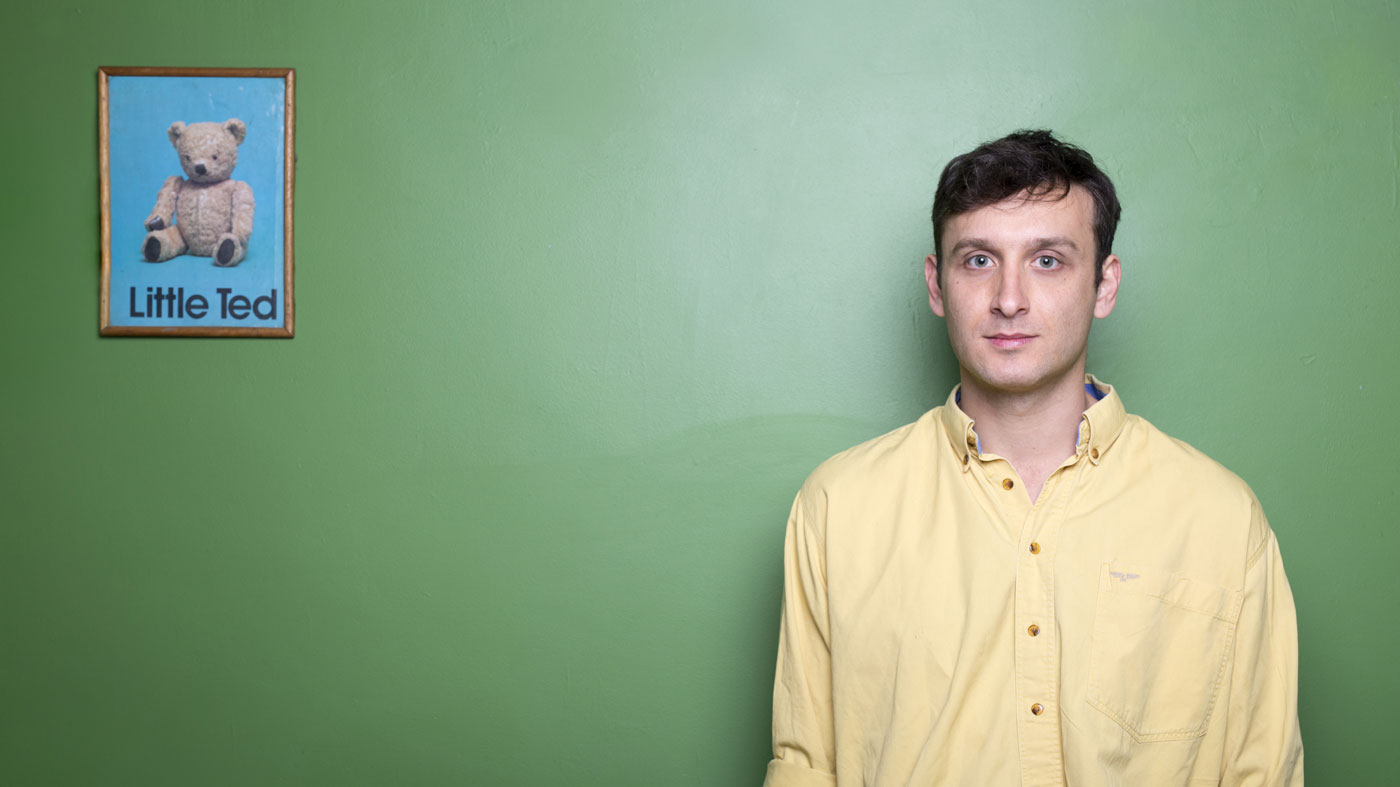
12-string thing
You use a Danelectro DC59 12-string. Why did you gravitate towards that guitar?
Olly: “Well, years ago, I wanted a bouzouki because of the double-string thing, but I couldn’t find one that I could afford. Then I saw this 12-string in the shop and it was reasonably cheap and it still had that chorus-y, double-string thing that had attracted me about the bouzouki.
“It was partly with intention of playing that sort of Malian blues- and even Turkish-sounding stuff on it. I changed the pickups fairly early on because the lipstick pickups were a bit too jangly for me. Now it’s Kinman P-90s, these sort of fake humbucker single-coil-type things.”
What other gear do you use?
When you haven’t really heard music before... it’s this amazing thing. We were trying to go back to that place where the novelty factor is high
Olly: “Live, I use the Electro-Harmonix POG 2 octave pedal quite a bit and the Roland JC-120 Jazz Chorus amp. It just has that nice, clean sound. I’ve come to realise that I don’t like distortion that much. I’m still using the looper I got originally, the Akai HeadRush. They’re quite old but they’re solid - a good unit! Then there’s a trumpet, flute and clarinet for loop stuff that we’re doing live. For the album, there was a lot of Mellotron stuff.”
Fabian: “We played with them a fair bit, didn’t we? And there’s a lot of played clarinet. I did a lot of pitch-shifting with it, playing something a few semitones up and then pitch-shifting it back down to the key. Quite a few instruments were done like that.”
What was the merit of pitch-shifting instruments like that, as opposed to playing in key?
Fabian: “Just the tone and the sound of it. It would be like, ‘This thing sounds really great, but it needs pitch-shifted down three semitones, so there was quite a lot of experimenting during the recording.”
Olly: “I guess we had this vague intention of making more familiar sounds slightly unfamiliar. We did that with drums quite a bit.”
Your record reminds this writer a little of Son Lux’s approach. He once told us that he doesn’t like things that he’ll laboriously multisample pianos and drum kits and use those in his songs, so everything has this fresh sound…
Olly: “That sounds like a similar intention. It’s easy to become [stale]. We were trying to create sounds, because when you haven’t really heard music before and you hear it for the first time, it’s this amazing thing, so we were trying to somehow go back to that place where the novelty factor is high because it’s not instantly recognisable. It becomes this other thing before you go, ‘Oh it’s this guy strumming his guitar.’ I think when you get older, you get more familiar with the [usual] sounds - especially when you’re playing.”
Fabian: “Definitely. I have had people ask - the three people I’ve spoken to - what synths I’ve used in certain parts of the songs, but it’s been a guitar.”
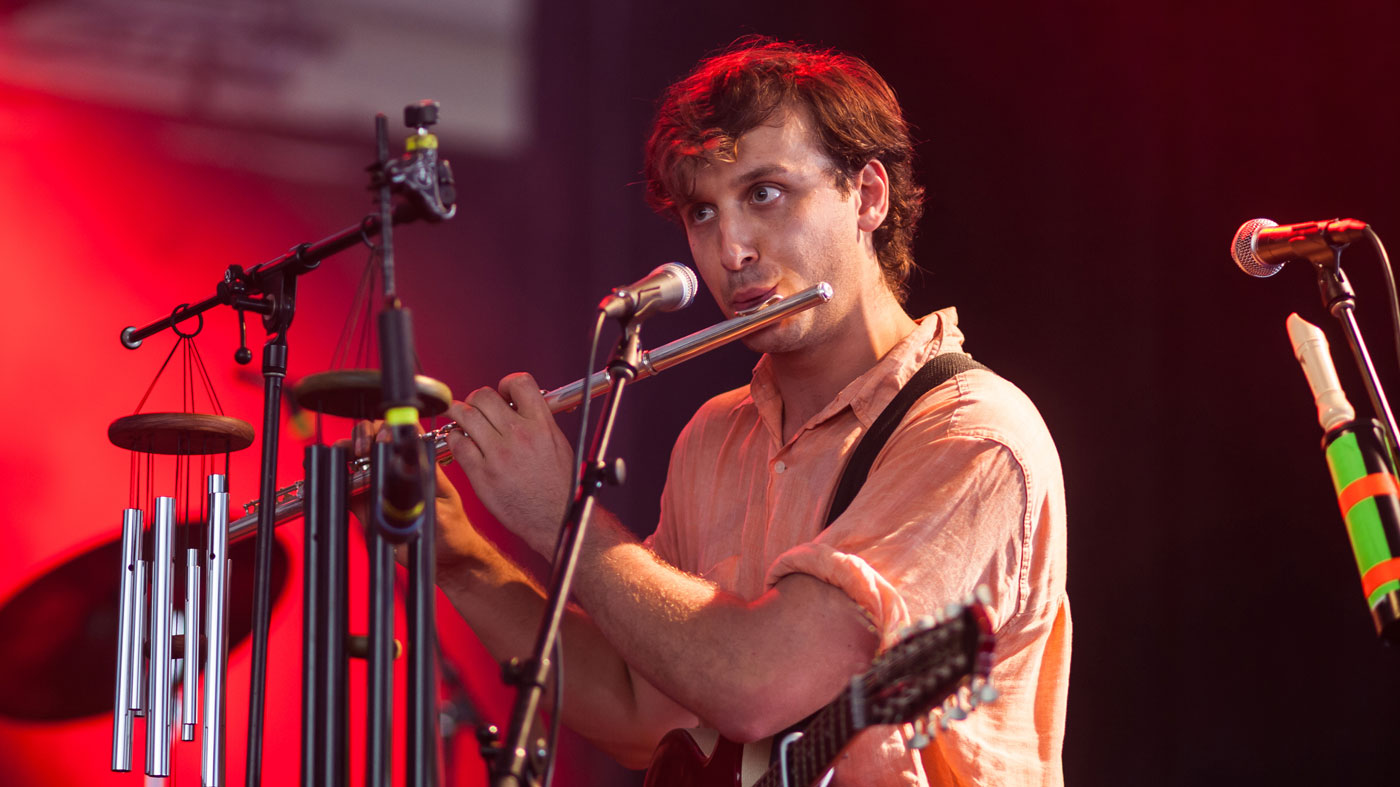
Natural tones
It’s an interesting point of view because we think of music as a broad church nowadays but in some ways the predominance of presets has made it narrower…
Olly can play lots of other things, but it sounds more natural on the guitar and I think it’s more the essence of him
Fabian: “I think doing it with the guitar, Olly is a very expressive guitarist and he can be express himself on the guitar, so it’s nice making the guitar sound like something else rather than having a synthesiser, which isn’t Olly’s main thing. He can play lots of other things, but it sounds more natural on the guitar and I think it’s more the essence of him. So it maintains that musicality and that performance but sounds different. I think that’s why it worked.”
There’s a wide variety of tone or pitch across the record. It doesn’t seem quite so mid-focussed as a lot of rock/pop/indie production. Again, this feels very lush. Where’s that coming from?
Fabian: “From my point of view that’s the arrangement.”
Olly: “I guess so. The intention was to have each song be its own world and the production was a big part of it, too, as we sort of took each song as its own project in terms of how it was mixed.”
Fabian: “Yeah, they were all completely different. It wasn’t, ‘Oh, this is how we get the snare sound for this album’ it was pretty much different every time.”
How did you two meet? How did you come to work on this, Fabian?
Olly: “Fabian worked for 4AD, among other things. And I was taking too long to record the album by myself. I kept trying and scrapping it and couldn’t get it to the level, so they kindly suggested I come to England and work with their in-house engineer.”
Fabian: “I work at the 4AD studio, basically, over in Wandsworth [London].”
Olly: “So I was there for three months, day-in, day-out, basically.”
How did it feel going from a relaxed pace, recording on your own to having that pressure of needing to record within a timeframe?
Olly: “It was kind of stressful. I don’t naturally work well with other people. Me and Fab had an incredible time and we got on together well, musically, too, which is rare for me, so that was extremely fortunate. I was encouraged to try recording with a guy in Australia before and, basically, because I’m very neurotic, it just didn’t work. I don’t naturally thrive in any stressful situation, so it’s really about whoever’s willing to tolerate me!”
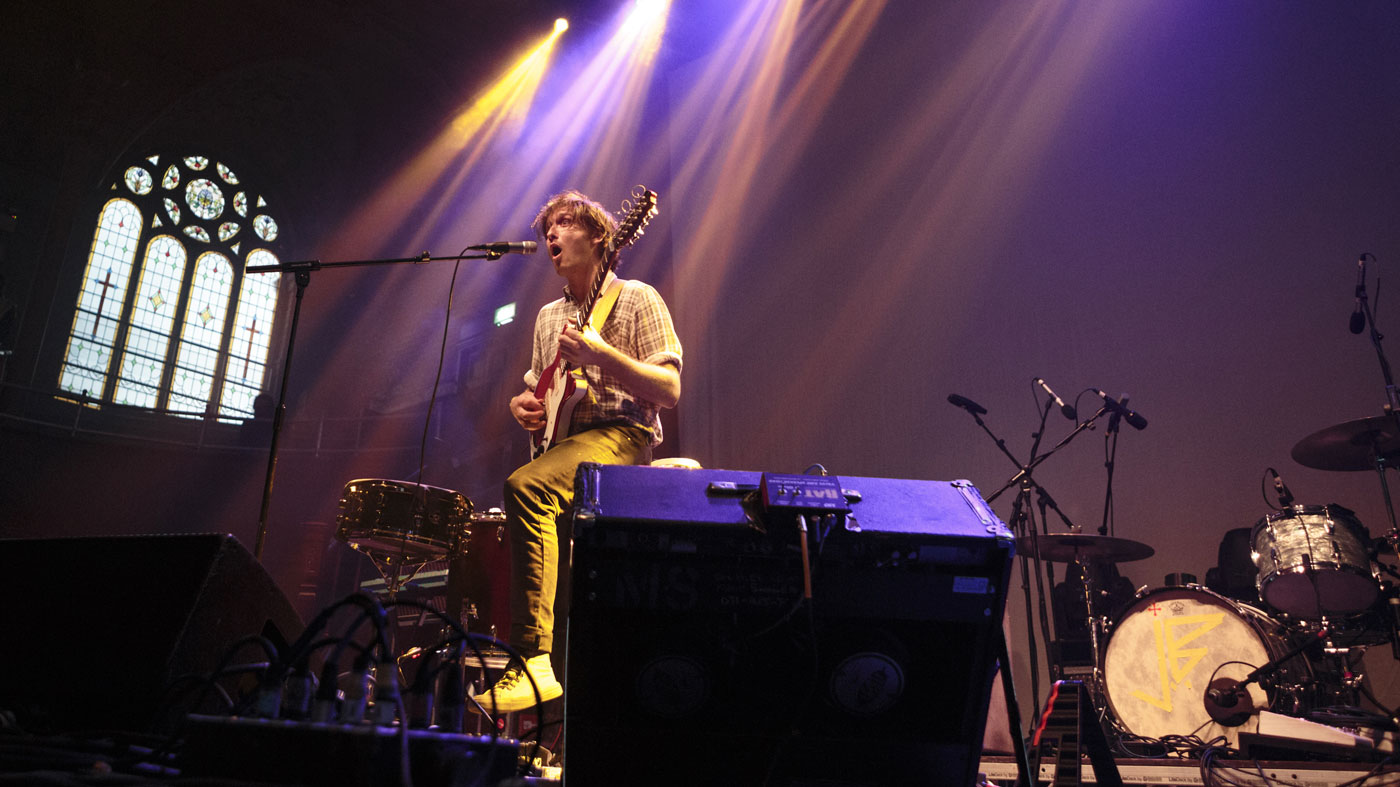
Internal standards
How did you go about corralling an individual such as Olly into finishing an album, Fabian?
Fabian: “It’s Olly’s project through and through - it’s his vision, so I suppose I just see myself as a helper here and there. He didn’t need encouraging or inspiring or anything.”
I don’t like other people’s opinions. Even if the intention is good I think it actually can compromise the possibility of what it could be
Olly: “To be honest, I don’t like other people’s opinions. Even if the intention is good I think it actually can compromise the possibility of what it could be. I don’t think Fab at any point was like, ‘Come on, mate…’ Not in the way that other people who are less musical might be. I was aware of the possibility of endlessly trying to reach some unobtainable thing, but at the same time still trying to do it as best you can.”
In your interview with Noisey you said that even then the album had not quite articulated what you had had in mind. How so?
Olly: “It may be that the sound in your head isn’t a physical sound. You can’t actually produce it in this reality.”
Fabian: “I think it’s almost a bit of a risky thing to be too self-aware about, because whether it exists or it doesn’t, you’ve just got to always try as hard as you can. If someone said [definitively], ‘It doesn’t exist’, then you’d be a different person and a different musician and you’d probably be a bit sadder! Though maybe it would be really easy to make albums.”
Olly: “Yeah, so it seems like there’s an unavoidable unsatisfactory ending to it, which is true of many things, I guess. It’s more like a principle that’s guiding you than an attainable thing.”
Final question. What’s with the punctuation in D.D Dumbo? Why is there only a full-stop after the first D?
Olly: “Oh right… Well it’s really just an aesthetic thing. For some reason, I just think it looks better. Keep in mind I had to drop out of school early, so my aesthetic standards may be influenced by lack of education.”
It probably says something about you that you’ve thought about it…
Olly: “Yeah, it says that I’m that pretentious and needing to be slightly different that I will erase the second full-stop!”
We’d say, ‘Demanding attention to detail’…
Olly: “Yeah, I like the sound of that.”
Matt is a freelance journalist who has spent the last decade interviewing musicians for the likes of Total Guitar, Guitarist, Guitar World, MusicRadar, NME.com, DJ Mag and Electronic Sound. In 2020, he launched CreativeMoney.co.uk, which aims to share the ideas that make creative lifestyles more sustainable. He plays guitar, but should not be allowed near your delay pedals.
“A pedal that sings with harmonic richness and blooming touch response”: Tone King offers up boutique tube amp tones for your pedalboard with the Imperial Preamp
“Each and every unit is perfectly dialled in to the 'sweet spot' that can be so elusive to find in vintage pedals”: Pigtronix’s Gas Giant is a high-gain fuzz pedal with a FET-driven onboard noise gate




